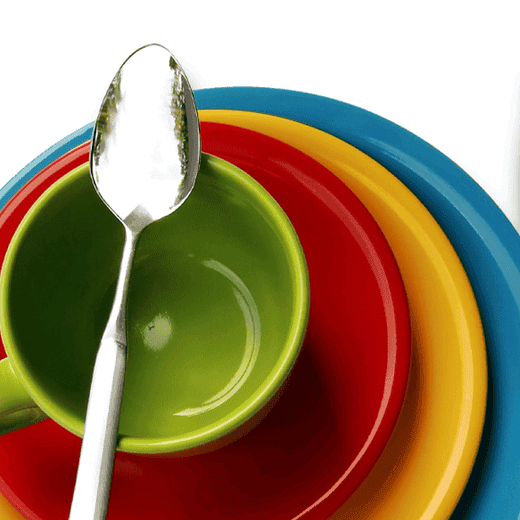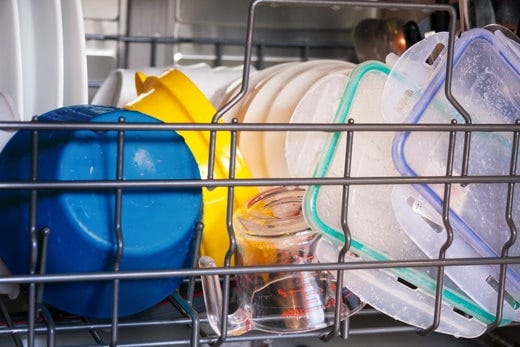
How long is a dishwasher cycle?
Dishwasher cycles can vary in length, but what’s normal for a typical dishwasher? We explain how long your dishwasher cycles should be lasting, including the best time to run your dishwasher.

Dishwasher cycle lengths can vary massively depending on the age and make of your machine, and the type of cycle function you opt for. Some express cycles may take as little as an hour and a half, whereas newer, more energy efficient machines may have dishwasher cycles of up to four hours (1).
How many cycles does a dishwasher have?
Most standard dishwasher will have at least three cycles:
- A light cycle, often used for delicate glassware and plates
- A normal cycle, for everyday plates and cutlery
- A heavy cycle, for items that need a more intense clean
Each of these cycles will vary in their length and temperature and should be selected according to cleaning need.
A lot of modern dishwashers, however, have many more cycle options. These can include:
- Eco-wash: for slow, energy-saving cycles
- Quick wash: for dishes which have already been rinsed
- Rinse/hold: to allow you to rinse dishes and leave them in the dishwasher as you wait for a larger load
- Auto clean: which senses how dirty your items are and adjusts the settings automatically
- Delay wash: which sets the dishwasher ready to wash at a specific time in the future (helpful for waiting for cheaper evening energy tariffs, or having the machine running when you’re out of the house)
- Half load: for smaller wash requirements
- Delicate cycle: to wash your delicate kitchen pieces
Ultimately, the number of cycles your dishwasher features will depend on its age and model.
How long is a regular dishwasher cycle?
It’s normal for a regular dishwasher cycle to last for two-hours or more, but the age and model of your dishwasher matters.
The standard dishwasher cycle on modern machines tends to be longer than the typical cycle on older machines. This is because modern machines have been designed with energy efficiency in mind. While it might seem counter-intuitive, longer cycles will tend to save energy and use water more efficiently.
Can I open my dishwasher mid-cycle?
You can open your dishwasher mid-cycle – it may disrupt the cycle on certain models (for example, if your dishwasher has a drying cycle), or you may have to press the start button again, but it shouldn’t cause a flood in your kitchen or damage your machine.
For many people, this worry is based on the common misunderstanding that your dishwasher fills up with water as it washes. This is, thankfully, not how your dishwasher works, so while opening the door mid-cycle might result in a little splashing (or a lot of steam being released), you won’t be faced with a tidal wave of water!
When is the best time to run the dishwasher?
What could be better than a machine that washes our dishes for us? Taking away the need to scrub using our own elbow grease, the dishwasher gives us shiny clean cutlery and sparkling plates at the touch of a button. But when is the best time to run it?
When it comes to turning on your dishwasher, the best time to do this is late at night. There are many factors that play a part in this, including energy costs, usage and even noise. Many people may worry about the noise of running a dishwasher at night. However, it’s usually more of a distraction in the day when you’re doing things (and can cause you to waste more energy by turning the TV up!) At night, the humdrum of the dishwasher is just a small disruption, but it varies from person to person whether it is significant enough to disturb your sleep.
Dishwasher vs hand washing
Unsure what is the right approach when it comes to dishwashing vs handwashing? Click here to read more.


